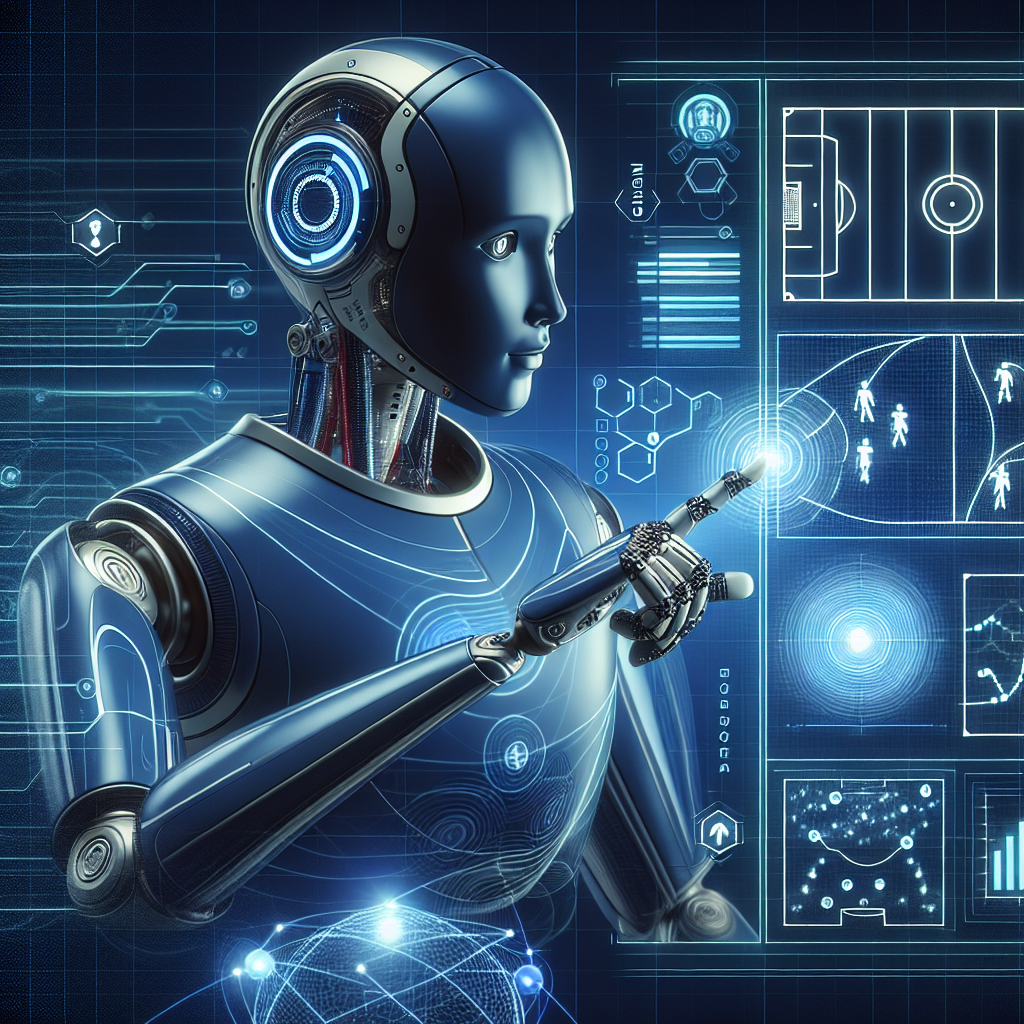Artificial Intelligence (AI) has become an integral part of various industries, including sports team management. With the help of AI technologies, sports teams can analyze data, predict outcomes, and improve overall performance. In this article, we will explore how AI is being used to enhance sports team management and the benefits it brings to coaches, players, and fans.
One of the key ways AI is revolutionizing sports team management is through data analysis. AI algorithms can process large amounts of data in real-time, allowing teams to make informed decisions based on statistical trends and patterns. For example, AI can analyze player performance, opponent strategies, and game conditions to provide coaches with valuable insights that can help them develop game plans and make strategic adjustments during matches.
Furthermore, AI can also assist teams in scouting and recruiting new talent. By analyzing player data from various sources, AI can identify promising athletes who possess the skills and attributes needed to excel in a particular sport. This not only saves time and resources for teams but also ensures that they are making data-driven decisions when it comes to building their rosters.
In addition to data analysis, AI is also being used to enhance player performance. Wearable devices equipped with AI sensors can track a player’s movements, heart rate, and other biometric data to provide real-time feedback on their performance. This information can help players and coaches identify areas for improvement and tailor training programs to address specific weaknesses.
Moreover, AI can help teams optimize their game strategies by simulating different scenarios and predicting outcomes. By analyzing historical data and current game conditions, AI algorithms can generate probabilistic models that can predict the likelihood of different outcomes based on various factors. This can help coaches make informed decisions during games, such as when to make substitutions, change tactics, or call timeouts.
Overall, the use of AI in sports team management has the potential to revolutionize the way teams prepare for games, analyze opponents, and develop players. By leveraging AI technologies, teams can gain a competitive edge and improve their chances of success on the field.
FAQs:
1. How does AI help sports teams improve player performance?
AI can help sports teams improve player performance by analyzing biometric data from wearable devices and providing real-time feedback on a player’s movements, heart rate, and other physiological indicators. This information can help players and coaches identify areas for improvement and tailor training programs to address specific weaknesses.
2. How does AI assist teams in scouting and recruiting new talent?
AI helps teams in scouting and recruiting new talent by analyzing player data from various sources to identify promising athletes who possess the skills and attributes needed to excel in a particular sport. This not only saves time and resources for teams but also ensures that they are making data-driven decisions when it comes to building their rosters.
3. How does AI help teams optimize their game strategies?
AI helps teams optimize their game strategies by simulating different scenarios and predicting outcomes. By analyzing historical data and current game conditions, AI algorithms can generate probabilistic models that can predict the likelihood of different outcomes based on various factors. This can help coaches make informed decisions during games, such as when to make substitutions, change tactics, or call timeouts.
4. What are some of the benefits of using AI in sports team management?
Some of the benefits of using AI in sports team management include improved decision-making, enhanced player performance, optimized game strategies, and better scouting and recruiting processes. AI technologies can help teams gain a competitive edge and improve their chances of success on the field.
In conclusion, AI is playing a significant role in revolutionizing sports team management. By leveraging AI technologies, teams can analyze data, predict outcomes, and optimize performance to gain a competitive edge. With the continued advancement of AI in sports, we can expect to see even more innovations in the way teams prepare for games, analyze opponents, and develop players.

